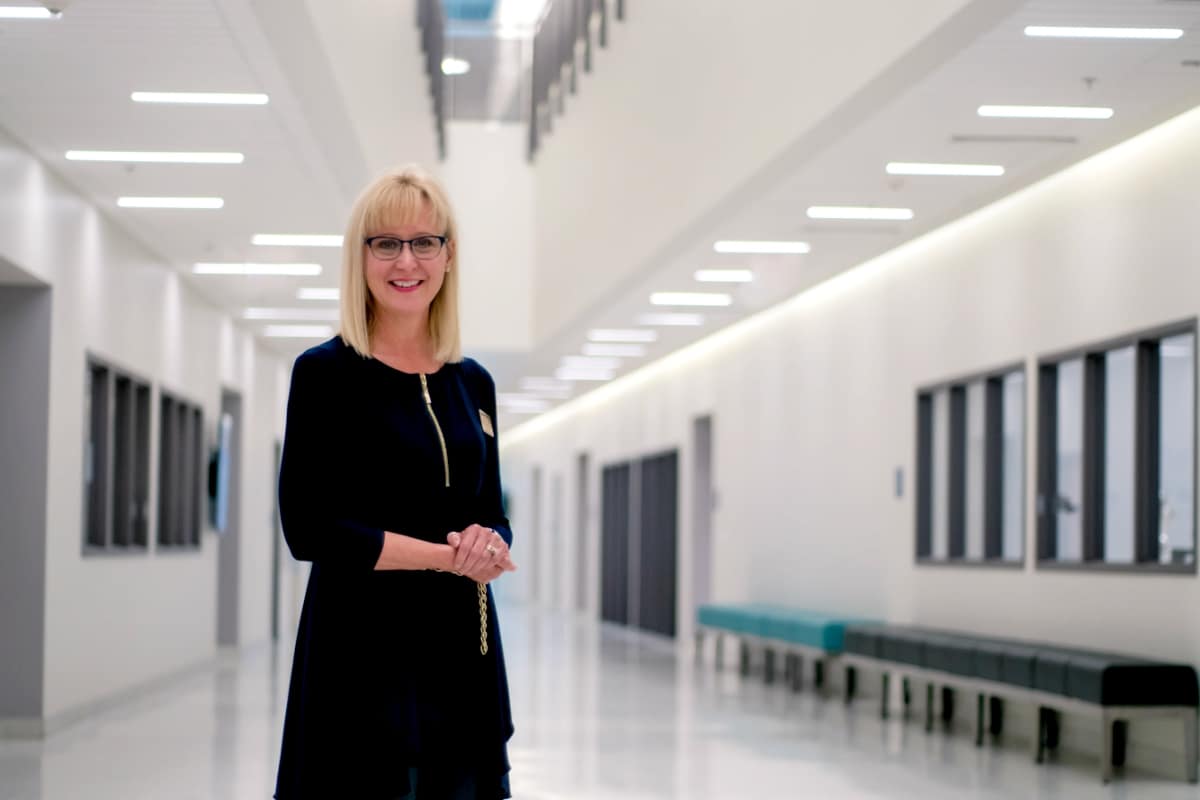From Bedside to Bench: Dean Kathy Lustyk Pays it Forward to Students

As a pre-med student at the University of Washington in the mid-1980s, Mary Kathleen Lustyk was working the graveyard shift in an emergency room, handling triage when she had a sudden, terrifying realization: She didn’t want to be a surgeon, after all. Frustrated by people clogging the ER with complaints of sniffles and hangnails, Lustyk had to admit she wasn’t cut out for daily interactions with patients.
“I’m much better-suited for research and teaching and mentoring students in a lab,” says Lustyk, now dean of the College of Arts and Sciences on Embry-Riddle Aeronautical University’s Prescott, Ariz., campus. “I wanted to work at the bench instead of the bedside.”
Lustyk met with University of Washington faculty member Nancy J. Kenney, now director of Undergraduate Studies. “She gave me entry to her laboratory,” Lustyk recalls. “She was a pivotal person and an excellent mentor to me.”
After earning a Ph.D. degree in physiological psychology with a minor in endocrinology, Lustyk landed an assistant professorship at Seattle Pacific University, and she established the first psychophysiology lab on that campus. Since then, her investigations of human and animal regulatory behavior have changed thinking about the value of behavioral interventions in treating physical conditions.
A ground-breaking research article in Gastroenterology, for example, showed that a physically active lifestyle can be beneficial to women with irritable bowel syndrome. That paper, which received an Outstanding Research Article award from the Society of Gastroenterology Nurses and Associates in 2002, inspired a wave researchers to assess the effects of behavioral interventions on various gastrointestinal problems. As director of the Lustyk Women’s Health Lab at SPU, her research expanded to encompass the complicated interrelationships between stress, impulsivity and “mindfulness” – a technique for paying attention to the present moment in a non-judgmental way – in women across all phases of their menstrual cycles.
Lustyk’s continuing research confirmed that women may tend to experience more stress, and they may be more emotionally reactive during their monthly luteal phase, following ovulation but before menstruation. “That got me thinking about what people do when they’re stressed,” she says. “They self-medicate with pills, alcohol and other substances.”
Working with the late G. Alan Marlatt, a leader in the field of addiction science, Lustyk explored whether mindfulness can reduce stress and craving – two factors that contribute to the 80-percent relapse rate among people with addictions. Her research showed that a “Mindfulness-Based Relapse Prevention” method was beneficial for addressing both factors. Lustyk’s work has also focused on how mindfulness can help balance the body’s automatic “fight-or-flight” sympathetic nervous system reactions with “rest-and-digest” parasympathetic responses mediated by the vagus cranial nerve.
Securing grants and conference invitations proved easier after Lustyk moved into addiction research. “It’s a shame, but even today, some people cringe if you talk about menstruation,” she says. “I had learn how to communicate effectively with different audiences.”
Named a Professor of the Year by SPU for two consecutive years, Lustyk was a department chair when she felt called to focus more on mentoring. “I’ve been able to shepherd others and guide them, just as Nancy Kenney did for me,” she says, “and I’ve found that increasingly rewarding.”
Her work with students is paying off. “Kathy changed my life,” says former student Haley Carroll, a clinical fellow in psychology at Harvard’s Massachusetts General Hospital. “She saw things in me that I didn’t necessarily see in myself.”
Under Lustyk’s direction, Carroll co-authored three scholarly articles and won a highly competitive clinical internship. “I wouldn’t be where I am without Kathy,” Carroll says. “She’s amazing.”
Editor’s Note: This article was originally published in the spring 2018 edition of ResearchER magazine (Vol. 2, No. 1). The ResearchER archives can be found on Scholarly Commons.

 Ginger Pinholster
Ginger Pinholster